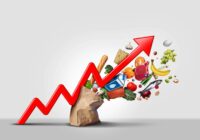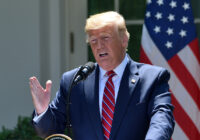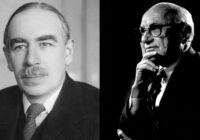This is part five of my series on why free market economics is a false religion. Be sure to check my last part, along with parts one, two, and three, and stay tuned for the rest.
In my last piece, I described how economists were able to rebrand what was once considered a branch of philosophy as a “science.”
In order to map their new “scientific” theories, the acolytes of economics returned to their catechism. Certain essential assumptions about human nature undergird economic theory, especially the free market variety. This human nature, they assumed, is what determines economic actions. The first assumption, as described by economists Richard D. Wolff and Stephen Resnick in their book Economics: Marxian versus Neoclassical, is every human’s inherent ability to prioritize all goods and services consistently. Obviously, haircuts are less important than groceries. Having a roof over your head is a higher priority than an expensive television. We make these choices every day.
Another core understanding is that it’s always better to have more than less of any good or service. It seems so obvious! More money, shoes, cars, two scoops of ice cream — more is better. We are built this way to survive.
Finally, rationality is recognized as one of the most basic components of human nature. Like economists, we are all rational individuals who make reasoned choices based on evidence (dramatic pause). Irrationality is not a common trait among human beings (stares into camera). We are all rational actors in a rational world.
These unquestionable bedrock understandings about human nature make it possible to predict the economic choices people will make in society.
If we follow the logic from these core understandings about humanity, the rest of neoclassical theory will start to fall into place. Free market economists know that our innate human nature determines outcomes. We get back what we put in (also known as the Theory of Distribution). As Wolff notes, economists understand that human beings possess, within their nature, an inherent rational and productive capability to produce the maximum wealth possible in society. This assumption returns to Adam Smith and the Invisible Hand of the market. Maximum wealth corresponds with the individual’s maximum freedom to pursue their own self-interest. When we have the freedom to act in our own self-interest, we will feel the power of that invisible hand guiding us to produce maximum wealth for society. Maximum wealth equals maximum happiness for everyone. Therefore, neoclassical economics understands that following one’s self-interest brings maximum happiness to society.
An empirical science that only works in theory
Logic dictates that this can only happen when there are perfect markets and supply and demand are equal. If markets are completely free, the neoclassical ideal, it’s possible to reach a state of economic nirvana where the producers’ selfish maximization of profits perfectly corresponds with the consumers’ selfish maximization of preferences. The goal is a state of harmony between scarcity and choice. If everyone is pursuing their own self-interest, the central imperative, nature’s economic equilibrium will be restored. At that point, the two tectonic plates of our human nature, our unlimited desire for more and our ability to satisfy those desires, will have finally come into balance. Hence, we will all achieve maximum societal happiness.
American philosopher John Dewey discusses this in his book The Public & its Problems. Using their new empirical analysis, economists relied heavily on their old philosophical roots. The old metaphysical conceptions about natural law slowly morphed into new economic facts of life. Supply and demand, under this new understanding, were now part of “natural” law. This put them in opposition to artificial, political laws made by people. The exchange of goods and services is guided by human nature, which is, in turn, guided by mother nature, as the thinking goes. Therefore, these interactions should be free from artificial political meddling or risk blocking maximum social prosperity and progress. The logic of free market theory dictates that economic law is natural and political law is unnatural. To tamper with economic nature is to invite disaster, like Dr. Moreau breeding grotesque horse-rhino-human or leopard-man hybrids in H.G. Wells’s classic book. Yuck!
Free market theory dictates that to achieve economic nirvana, the government needs to butt out. “A principal aim,” writes Wolff, of both the classical and neoclassical schools, was to show how “capitalism could reach its potential only if all economic and non-economic barriers to private wealth maximization were removed.” Free market economists tell us the only answer is to let markets correct themselves. Any efforts to reform or modify private property or competitive markets are inherently wrong, according to Wolff, because they create barriers to maximum wealth – and, by extension, to maximum societal happiness.
When you peel back the onion on the bedrock assumptions of free-market capitalism, you can see how moral philosophy informs the “science” of economics. Other sciences don’t operate from moral presumption. Religions do.
[Liam Roman edited this piece.]
[Let’s Make Them Pay first published this piece.]
The views expressed in this article are the author’s own and do not necessarily reflect Fair Observer’s editorial policy.
Support Fair Observer
We rely on your support for our independence, diversity and quality.
For more than 10 years, Fair Observer has been free, fair and independent. No billionaire owns us, no advertisers control us. We are a reader-supported nonprofit. Unlike many other publications, we keep our content free for readers regardless of where they live or whether they can afford to pay. We have no paywalls and no ads.
In the post-truth era of fake news, echo chambers and filter bubbles, we publish a plurality of perspectives from around the world. Anyone can publish with us, but everyone goes through a rigorous editorial process. So, you get fact-checked, well-reasoned content instead of noise.
We publish 2,500+ voices from 90+ countries. We also conduct education and training programs
on subjects ranging from digital media and journalism to writing and critical thinking. This
doesn’t come cheap. Servers, editors, trainers and web developers cost
money.
Please consider supporting us on a regular basis as a recurring donor or a
sustaining member.
Will you support FO’s journalism?
We rely on your support for our independence, diversity and quality.










Comment